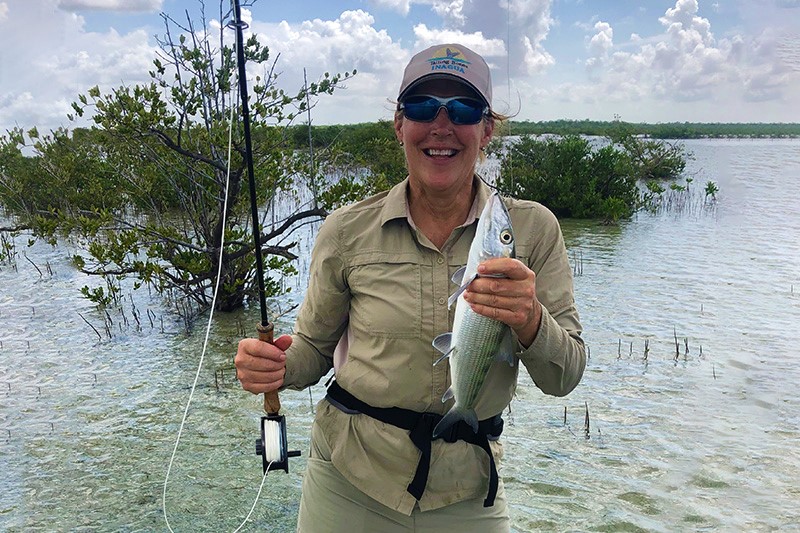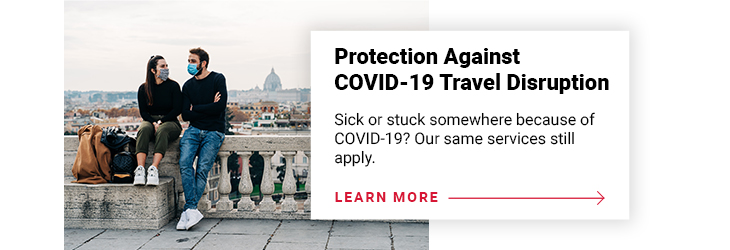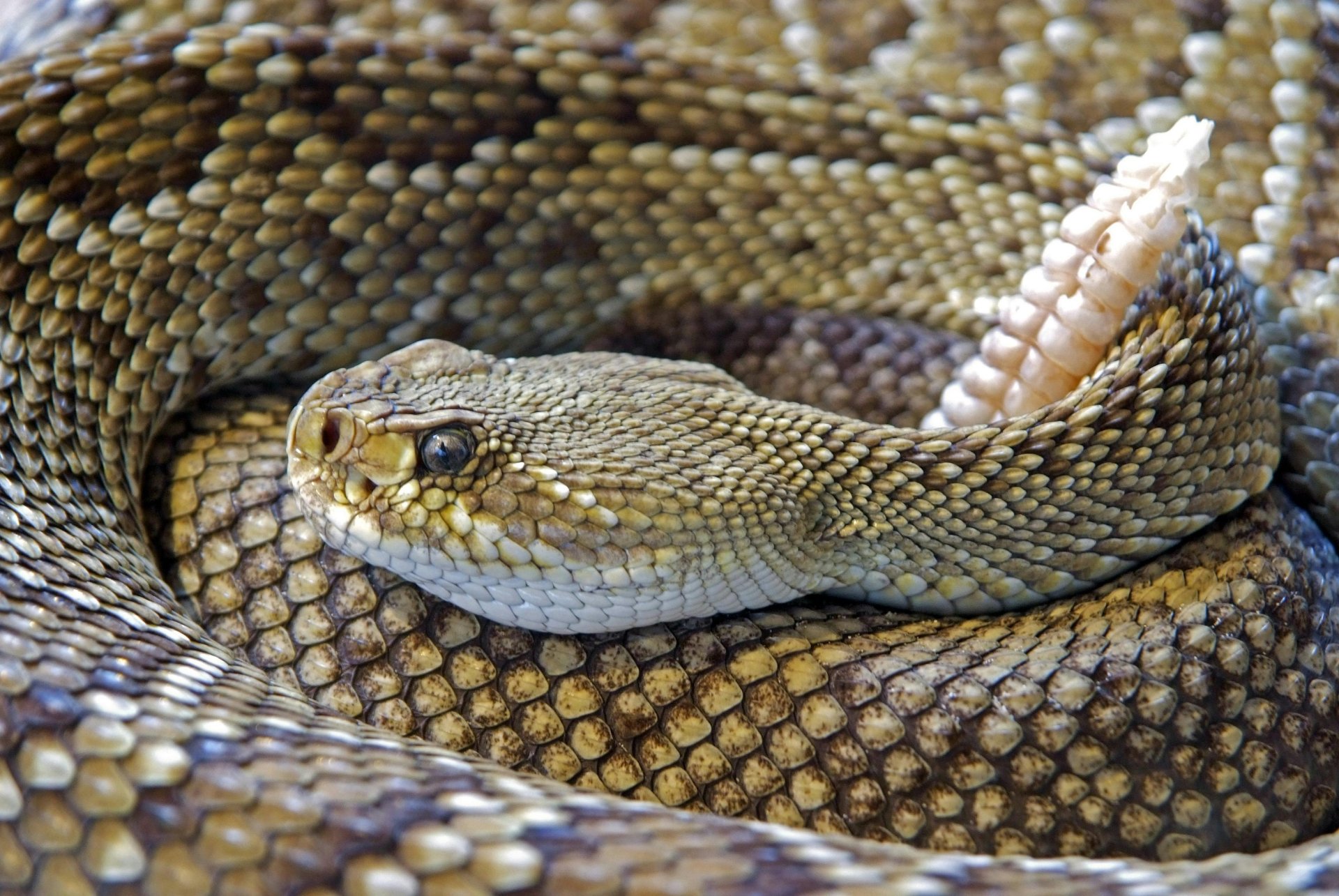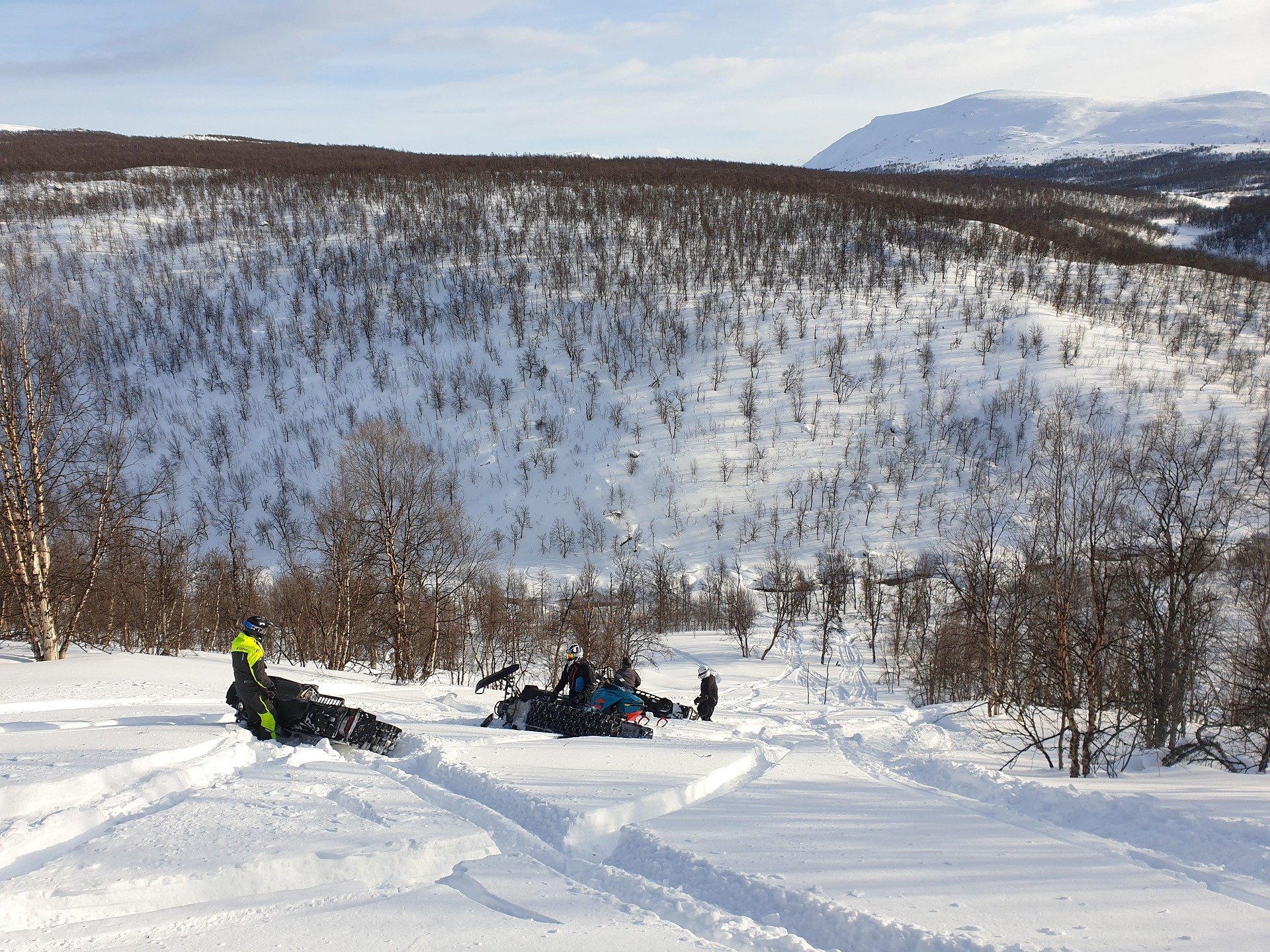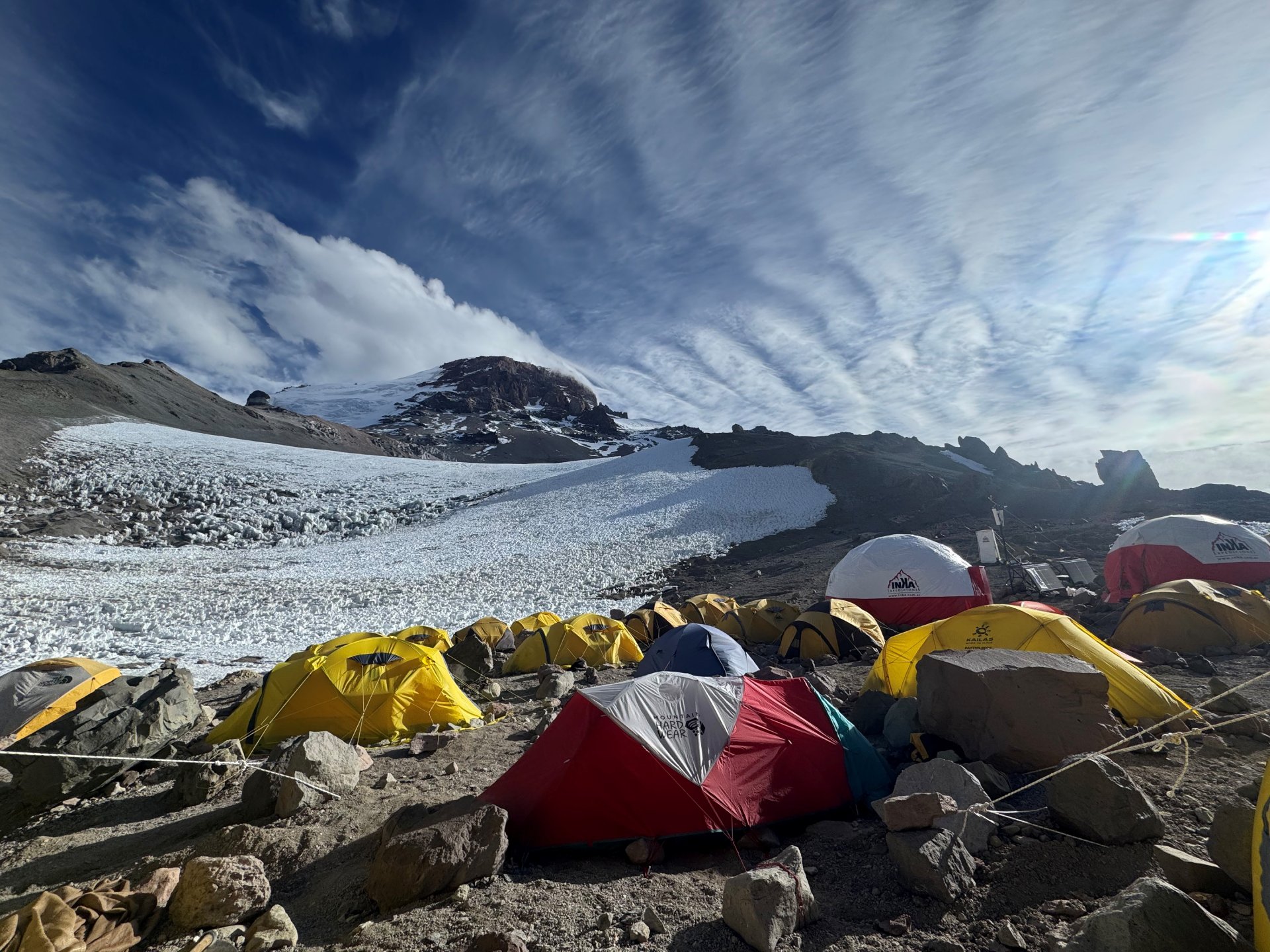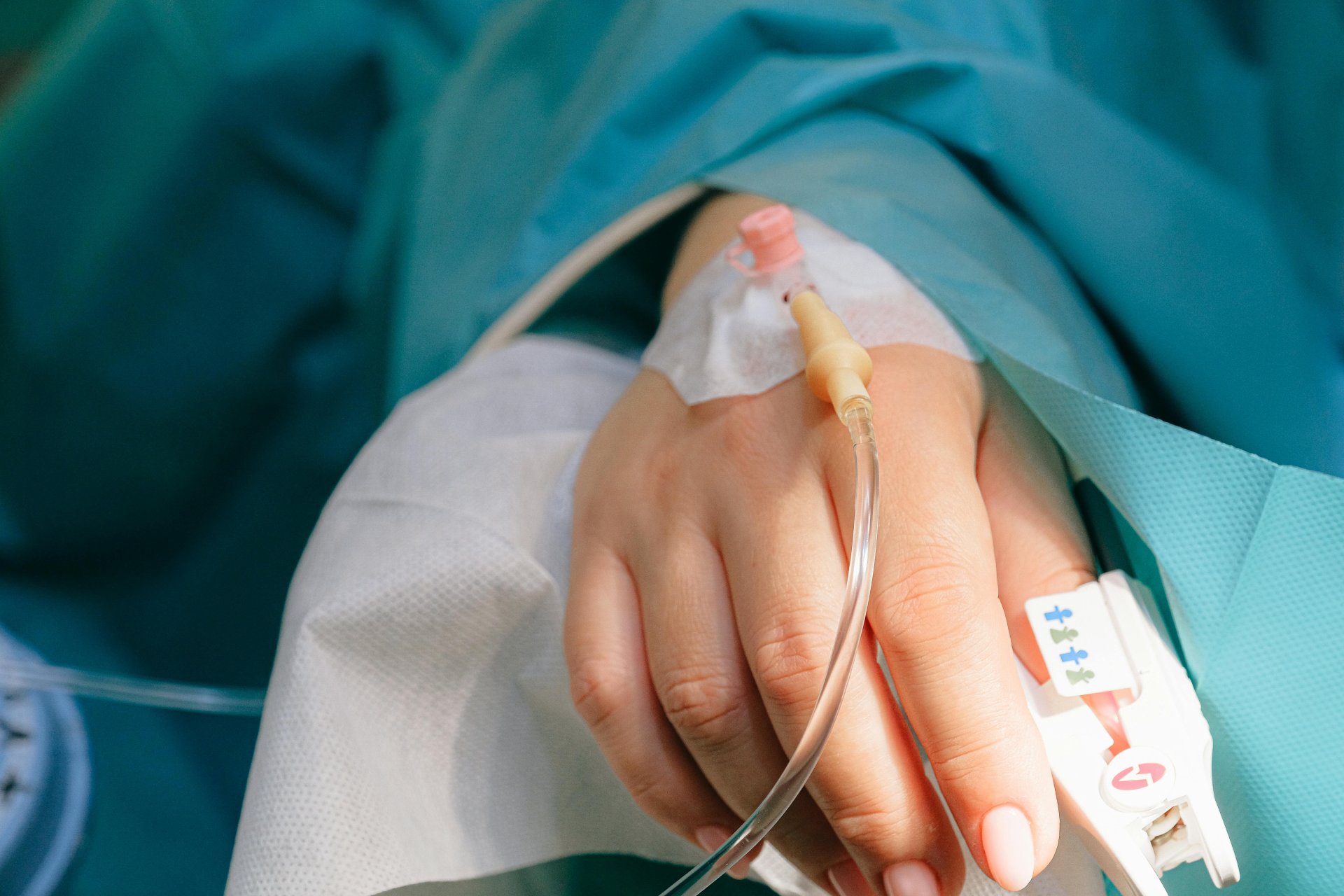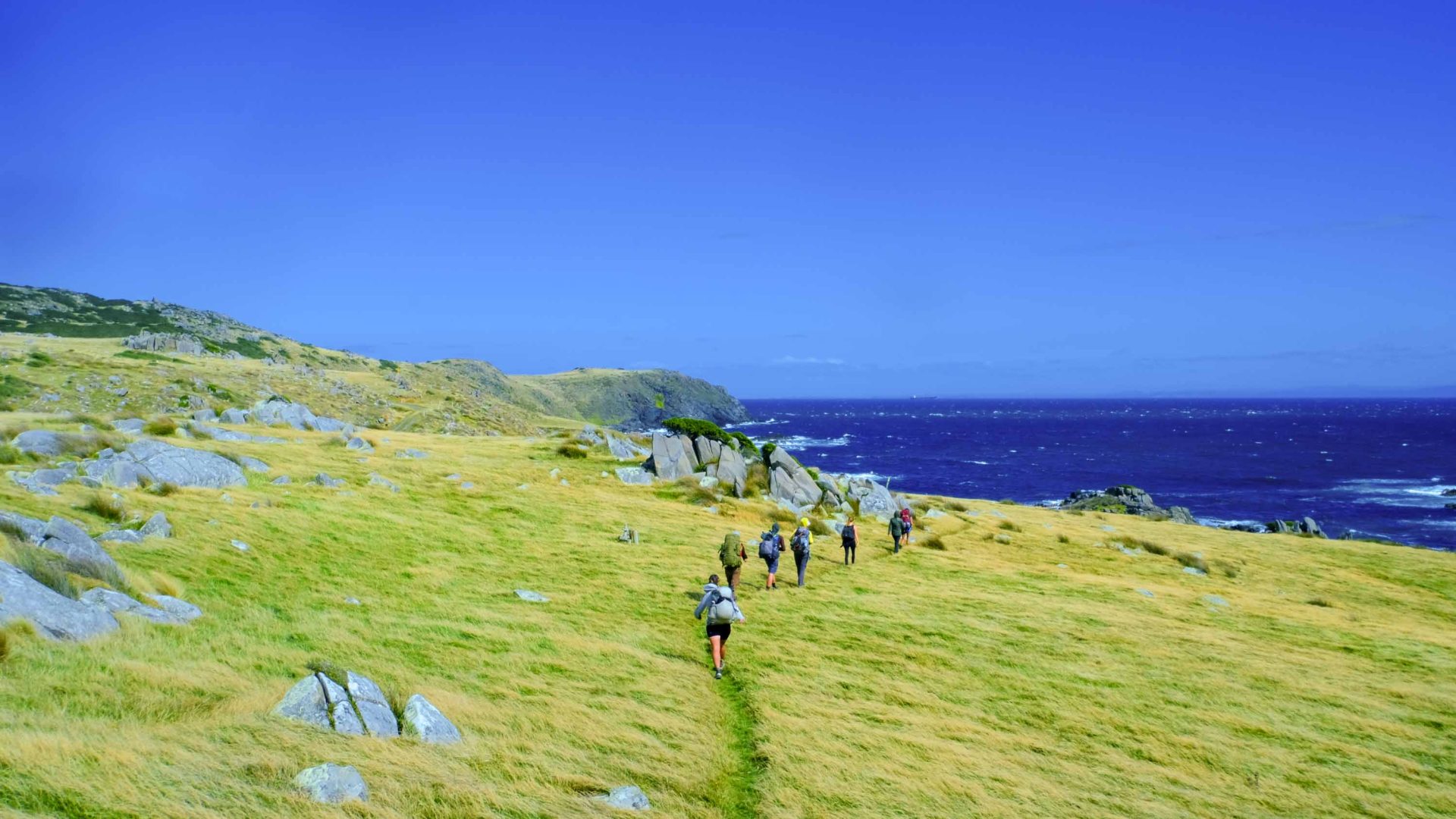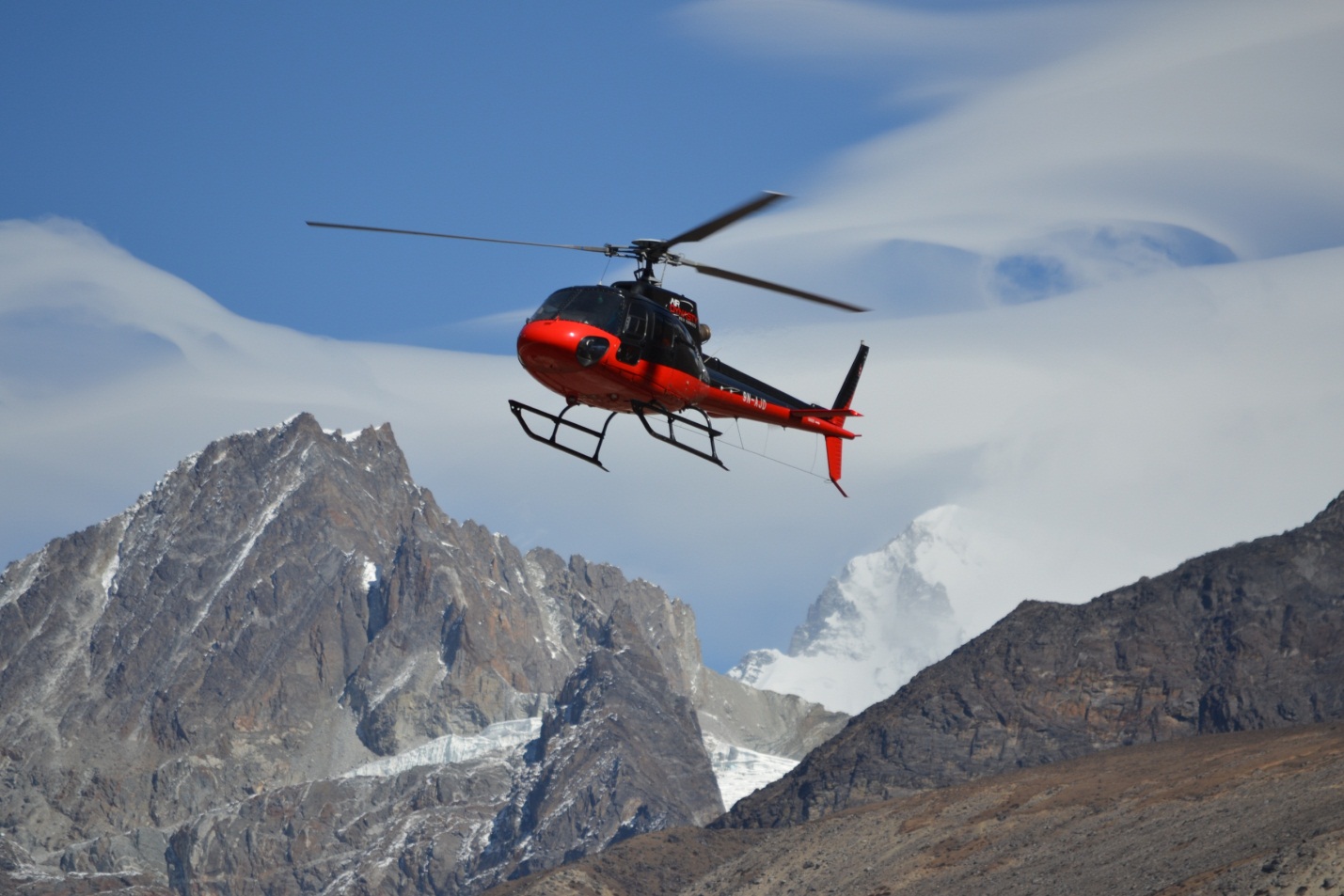Montana resident and avid fly fisher Dolly Webster and her partner Michael Smith set off for a six-day fishing trip to the island of Great Inagua. Little did they know one of them would catch more than fish.
The tiny island is 375 miles/604 kilometers southeast of Nassau, the Bahamas. It’s a paradise for fly fishing enthusiasts who are seeking tarpon, bonefish and permit.
It was Webster’s first time to the area, but Smith was a veteran of 20 visits to the island. But her novice status didn’t diminish her skills or her luck. “I caught so many fish. It was terrific. I hooked up my first tarpon. They are amazing fish, so huge, strong and acrobatic,” Webster said.
Despite Being Careful, COVID-19 Strikes
A day or so before their trip ended, the pair needed to obtain negative COVID-19 tests before returning to the U.S.
Webster has severe allergies to a variety of vaccinations that make getting a COVID-19 vaccine a potentially dangerous undertaking that could lead to hospitalization.
“I have a health history of poor reactions to vaccines like tetanus and penicillin. I was planning to get the COVID-19 vaccine. I need to do it in a hospital because the potential for an adverse reaction is high,” she said.
Consequently, Webster has been fastidious in minimizing her risk of exposure and infection by assiduously following pandemic guidelines and staying abreast of the scientific developments associated with the disease.
She and her partner followed COVID-19 protocols to the letter; masking, physically distancing, taking part in outdoor activities like fishing, and obtaining negative PCR tests before traveling to the island nation.
Smith’s test at the end of the fishing trip was negative. Webster’s was positive. She was stunned.
“I was shocked when I heard the nurse say my test was positive since I’d been so careful.”
A Higher Level of Care Was Called For
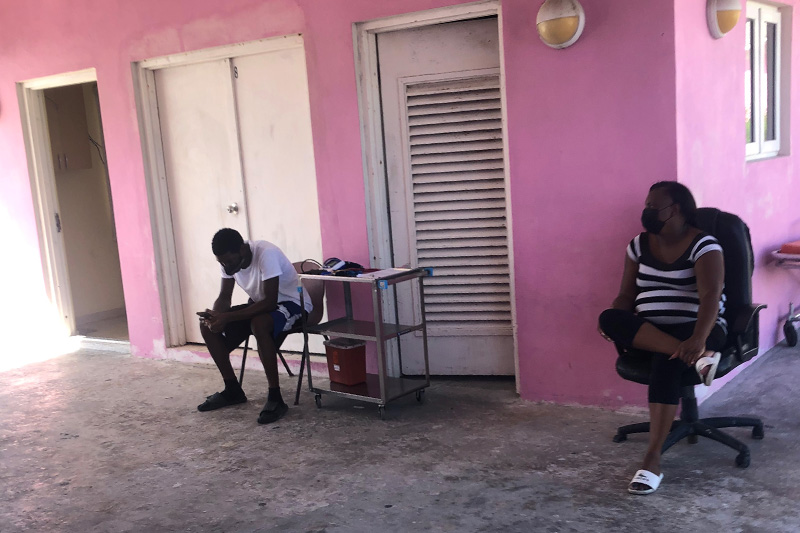
Great Inagua Island’s small clinic was not capable of providing the level of medical care appropriate for Dolly.
The news seized the duo with substantial uncertainty and trepidation. Dolly’s symptoms were undeniable. The medical facilities on the island were limited, and the twosome was far from a higher level of care. They felt trapped.
They researched all their options, including one where Smith — who was permitted to travel — would fly to the U.S. Upon his arrival, he planned to obtain the needed treatment medicine, specifically monoclonal antibody treatments that help the body fight COVID-19. The medicine was unavailable on the island. Smith figured he would return to Great Inagua with the medicine for Dolly.
Fortunately, the option Smith chose was to call Global Rescue.
“He reported Dolly had been experiencing what they thought was a head cold since the previous Saturday, but symptoms had elevated and now resembled the flu,” according to Carlene Merola, a Global Rescue medical operations senior specialist.
The couple was using the only health center on Great Inagua Island. The clinic staff found Webster’s oxygen level was low and her blood pressure was below the normal range. Those vital signs are danger signals because decreased oxygen can result in impaired functioning of the heart and brain.
“We also checked out the medical facility’s abilities. We learned the small clinic was treating patients outside while passing around a small oxygen cylinder between patients who required it. We determined the clinic was incapable of providing adequate medical care and transport to a facility with a higher level of care was medically warranted,” Merola said.
A Speedy Medical Evacuation to Miami
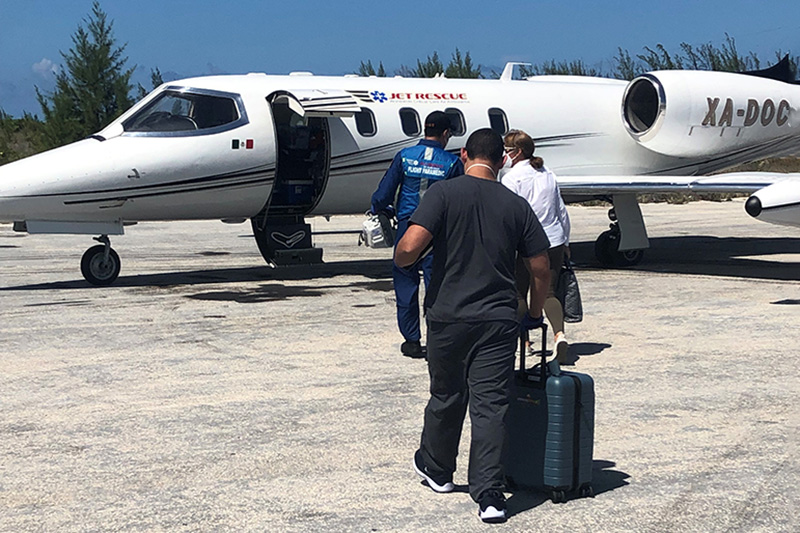
Dolly boarding the air ambulance bound for a hospital with a higher level of care in Miami.
Smith and Webster are members of Global Rescue. Until now, they had not needed medical evacuation services, especially for a COVID-19 case during a pandemic. They were uncertain how things would play out.
“We were both somewhat skeptical when we called Global Rescue whether it would be a positive response,” Smith said.
“I called. The phone was answered by a human being. I explained the situation and 10 seconds later I was connected to medical operations senior specialist (Merola) who immediately asked about Dolly’s symptoms, the exam, diagnosis, vital signs and more,” Smith added.
The Global Rescue operations team acted quickly and confirmed an airborne medical evacuation was on the way.
“We understood the situation and the urgency for an appropriate medical evaluation. This was a field rescue and she needed a level of hospital care not available on the island so we arranged an immediate air ambulance transport to a hospital where she could receive appropriate medical care. We knew we had to get her out as soon as possible,” said Jeff Weinstein, Global Rescue medical operations supervisor.
It was a comfort for Dolly, who knew that getting treatment as soon as possible was vital to recovery.
“Every hour counts. I was desperate to get off that island and get early treatment,” she said.
After the jet arrived, the in-flight medical team conducted a medical examination to monitor Dolly’s condition. The couple boarded the evacuation jet and made their way to Miami.
“Every transport is unique,” said Carlos Salina, CEO of the air ambulance firm working with Global Rescue. “People have special health conditions. Every country has distinct requirements for entry to pick up patients and then you have to make certain you meet all the restrictions for countries you’re going to. Those rules are often changing,” he said.
Salinas is personally invested in his work. “I’ve had COVID-19 and I can tell you that you feel like you’re going to die,” he said. Salinas was transported by his firm when he got COVID. His advice to travelers is simple. “Get vaccinated and use the mask.”
When the couple arrived at the airport, they were transported to the hospital by a vehicle arranged for by Global Rescue. Dolly was immediately admitted, examined and began receiving monoclonal antibody treatment.
Glad to Have Global Rescue
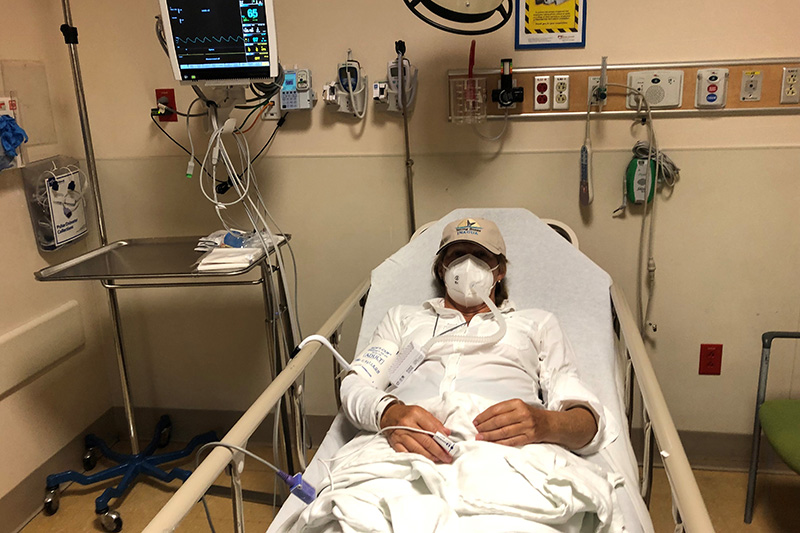
Dolly receiving the proper treatment vital to her recovery.
The couple returned to Montana where Dolly continued her recovery. They have told their story to friends and family – advising them to travel with a Global Rescue membership.
“Don’t leave home without it,” she insisted.
Webster is reflective following the experience and how the pandemic is changing the way we live and the way we travel.
“It’s so variable in the effects it can have on a person’s health. It is a frightening disease. We can no longer travel how we used to. Our whole world has changed. Travelers now need medical evacuation protection for any trip and not just adventure trips like mountaineering, trekking, remote fishing or anything else,” she said.
Webster believes travelers use the word ‘rescue’ too lightly. She promises never to do that again.
“There are no words for that moment when Global Rescue helped me get my life back,” she said.
Weeks later, Webster is near full recovery, getting back to normal and planning her vaccination. She remains impressed with how Global Rescue performed.
“I’m still awestruck by the level of care, concern and nurturing from the entire Global Rescue team,” she said. “I’ve never experienced anything like it.”

